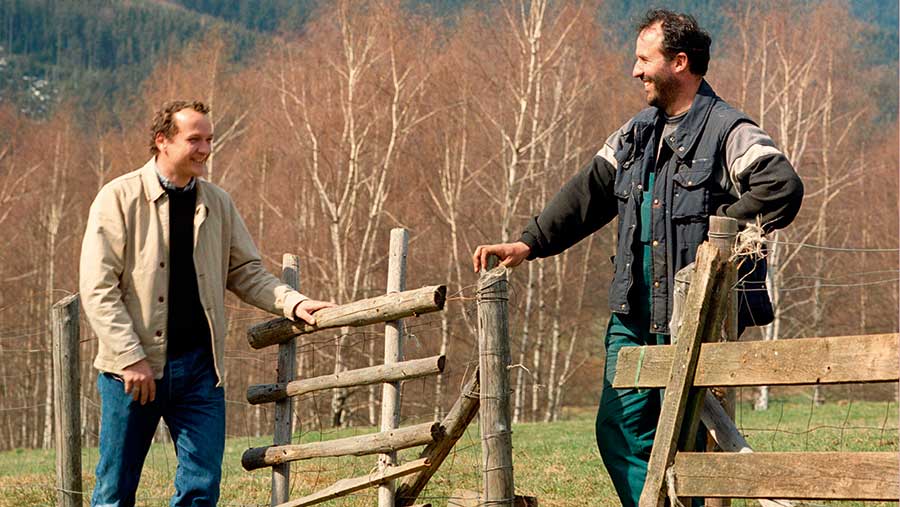How a bespoke farm tenancy agreement benefits all
 © Cultura/Rex/Shutterstock
© Cultura/Rex/Shutterstock Creating a tailored tenancy agreement rather than an off-the-shelf document can ensure an arrangement that better suits the needs of the landlord, tenant and holding.
Standard tenancy agreements are available from organisations such as the Royal Institute of Chartered Surveyors (Rics) and the Central Association of Agricultural Valuers (CAAV).
They are widely used but, crucially, many agreements are signed without the landlord and tenant negotiating and altering the terms to reflect the objectives of both parties.
The issue was raised last September, when Tenant Farmers Association chairman George Dunn accused some land agents of “laziness” for relying on “off-the-shelf” agreements.
He complained that they were often not making use of the flexibility introduced by the Agricultural Tenancies Act 20 years ago, which was intended to remove restrictions and allow landlords and tenants to agree terms specific to them.
See also: Land agents accused of “laziness” in tenancy agreements
Joel Woolf, a partner at law firm Foot Anstey, said: “We see the same document turn up time and time again, whether it’s for a fully equipped arable farm on a 20-year tenancy or 10 acres of summer grazing.
“That can’t be right because it’s not fitting the circumstances for the landlord, tenant or the property.”
Tenancies have the potential to really drive the future of the industry forward, says Mr Woolf, and the agreement frames the relationship between tenant and landlord.
But a clear vision is required. “It starts with the landlord deciding what they want to achieve and how they are going to achieve it.”
It is now fairly common for both parties to negotiate a bespoke agreement, adds Gareth Wall, partner at McCartney, but with demand for tenancies traditionally outstripping supply, some landlords “play hardball” with the terms.
Case study: Dartington estate’s organic vision attracted like-minded tenants
John Channon, manager of the Dartington Estate in Devon, says a clear vision and a bespoke tenancy agreement put off unsuitable applicants and helped the estate find the right tenants.
A wholesale review of land use across the 1,200-acre site carried out in 2014 significantly changed the way the estate was to be farmed in the future.
As a result, the main tenanted holding – 480-acre Old Parsonage Farm – would move away from conventional mixed farming to support a more organic approach.
“It weeded out applicants who were conventional and we were left with those who thought laterally and collaboratively,” he said.

New tenants Jon and Lynne Perkin (pictured above) took over the farm last year on a 20-year farm business tenancy. They milk 70 Jerseys, 200 goats and grow arable crops to organic-equivalent standards.
The tenancy agreement obliges the pair to devote 48 acres to an agroforestry experiment and also requires them to maintain the farm’s buildings.
Mr Perkin said while other farmers saw the terms as a disadvantage, he viewed them as an opportunity. “We went through the agreement with a fine-tooth comb and tweaked lots of clauses – mainly relating to maintenance of buildings and some conditions of the rent review.
“But it’s about trust – if you feel you can have a trusting relationship, it takes a lot of the stress out of the process.”
Agreements – what is and isn’t negotiable?
Most clauses within an agreement are negotiable, says Mr Wall, but some clauses are generally left untouched. Here are the ones that are negotiable:
Repair and insurance – Often a point of contention if not set out in clear, accepted terms from the outset. Details should include who is responsible for repairs and insurance of buildings and property included in the lease.
Costs – Model tenancies often indemnify the landlord against all costs, which can even include the serving of rent review notices. But these terms can be amended so there is a more equal sharing of costs between parties – for example, to state that the tenant is only responsible for reasonable costs if they are in breach of the agreement.
BPS entitlements – This clause can be softened so any BPS entitlements purchased from the landlord during the tenancy must be bought back at market value. Left unchecked, tenants often have to return entitlements at the end of the agreement at no cost to the landlord.
Break clauses – Tenants should always negotiate this clause to achieve a satisfactory term. If they have a 20-year FBT with a three-year break clause, they effectively only have a three-year FBT.
Rent review provision – This usually states that rent can be reviewed every three years in line with market value. This can be varied to link rent to the price of certain commodities, for example.
Use and management of the holding – Usually left untouched, but can clarify what crops or livestock the tenant is permitted to have on the holding.
Alienation – A fairly standard clause that is only altered if the tenant is permitted to sub-let land or buildings.
